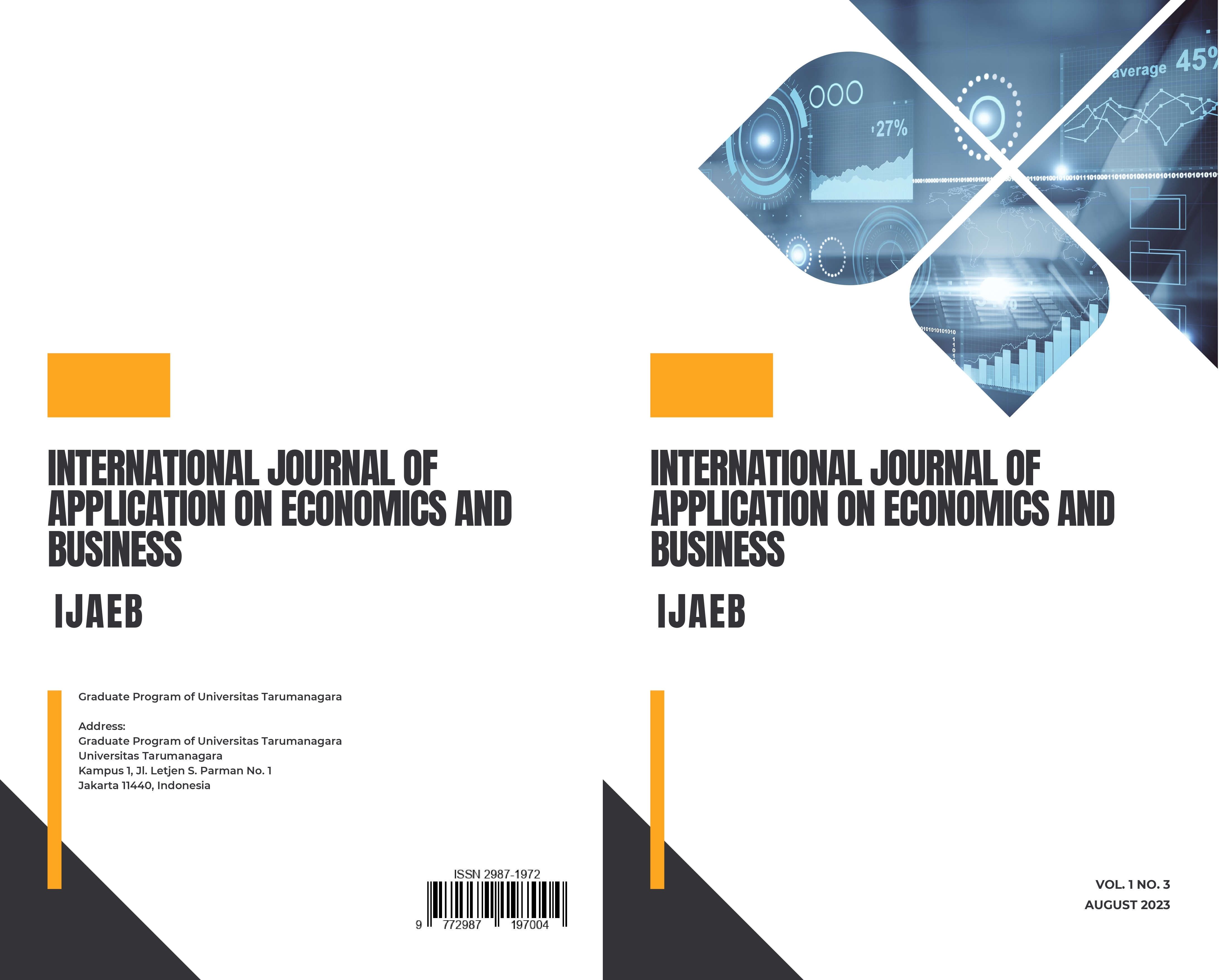IS WORKPLACE FRIENDSHIP IMPORTANT ON THE RELATIONSHIP BETWEEN EMOTIONAL EXHAUSTION AND ORGANIZATIONAL CITIZENSHIP BEHAVIOR- TAKE PRESCHOOL TEACHER IN TAINAN AS SAMPLES
Main Article Content
Abstract
Preschool educators play a vital role in the preschool education system. Therefore, it is very important to know the working conditions of preschool education and the influential factors of its personnel’s attitude and behavior. According to the literature review, it is found that emotional exhaustion has a negative impact on organizational citizenship behavior, and workplace friendship has a moderating effect on the relationship between emotional exhaustion and organizational citizenship behavior. Therefore, this study used preschool teachers in Tainan, Taiwan as samples to investigate the relationship between emotional exhaustion, workplace friendship and organizational citizenship behavior of individuals (OCBI). In this study, 307 valid questionnaires were collected by using the convenience sampling method. The study found the following points: 1. Emotional exhaustion has a negative impact on OCBI; 2. Workplace friendship has a positive impact on OCBI; 3. Workplace friendship has moderating effect on some relationships between emotional exhaustion and OCBI. Finally, some relevant management suggestions were proposed.
Article Details

This work is licensed under a Creative Commons Attribution-NonCommercial-ShareAlike 4.0 International License.
This journal provides immediate open access to its content on the principle that making research freely available to the public supports a greater global exchange of knowledge.
IJAEB by Graduate Program of Universitas Tarumanagara is licensed under a Creative Commons Attribution-NonCommercial-ShareAlike 4.0 International License.. Permissions beyond the scope of this license may be available at https://journal.untar.ac.id/index.php/ijaeb
References
C. C. Yang, C. W. Fan, K. M. Chen, S. C. Hsu, & C. L. Chien, As a happy kindergarten teacher: the mediating effect of happiness between role stress and turnover intention, The Asia-Pacific Education Researcher 27(6) (2018) 431-440.
C. Maslach & M. P. Leiter, Early predictors of job burnout and engagement, Journal of Applied Psychology 93 (3) (2008) 498–512.
M. P. Leiter & C. Maslach, Areas of worklife: a structured approach to organizational predictors of job burnout. In P.L. Perrewe & D.C. Ganster (Eds.), Research in Occupational Stress and Well-Being, JAI Press: Elsevier Science (2004), pp. 91–134.
Maslach, C., S.E. Jackson, and M.P. Leiter, Maslach burnout inventory manual. In C. P. Zalaquett, R. J. Wood (Eds.), Evaluating Stress: A Book of Resources, The Scarecrow Press (1997), pp.191-218.
Wright, T. and R. Cropanzano. Well being, satisfaction and job performance: another look at the happy/productive worker thesis. In Academy of Management Proceedings, Academy of Management (1997), pp. 364-368.
J. R. B. Halbesleben, J. P. Neveu, S. C. Paustian-Underdahl, M. Westman, Getting to the “cor”: Understanding the role of resources in conservation of resources theory, Journal of Management 40(5) (2014) 1334–1364. https://doi.org/10.1177/0149206314527130
L.A. Sapadin, Friendship and Gender: Perspectives of Professional Men and Women, Journal of Social and Personal Relationships 5(4) (1988) 387-403.
B. A. Winstead, V. J. Derlega, M. J. Montgomery, & C. Pilkington, The quality of friendships at work and job satisfaction, Journal of Social and Personal Relationships, 12 (1995) 199–215. doi:10.1177/0265407595122003
I. K. Nielsen, S. M. Jex, & G. A. Adams, Development and validation of scores on a two-dimensional workplace friendship scale, Educational and Psychological Measurement 60(4) (2000) 628-643.
H. H. Tse, M. T. Dasborough, & N. M. Ashkanasy, A multi-level analysis of team climate and interpersonal exchange relationships at work, The Leadership Quarterly 19(2) (2008) 195-211.
J.A. LePine, A. Erez, & D. E. Johnson, The nature and dimensionality of organizational citizenship behavior: a critical review and meta-analysis, Journal of Applied Psychology 87(1) (2002) 52-65.
E. M. Eatough, C. H. Chang, S. A. Miloslavic, & R. E. Johnson, Relationships of role stressors with organizational citizenship behavior: a meta-analysis, Journal of Applied Psychology 96(3) (2011) 619-632.
R. S. Dalal, A meta-analysis of the relationship between organizational citizenship behavior and counterproductive work behavior, Journal of Applied Psychology, 90(6) (2005) 1241-1255. doi: 10.1037/0021-9010.90.6.1241
D. W. Organ, P. M. Podsakoff, & S. M. McKenzie, Organizational Citizenship Behavior, SAGE Publication (2006).
L. J. Williams, & S. E. Anderson, Job satisfaction and organizational commitment as predictors of organizational citizenship and in-role behaviors, Journal of Management 17(3) (1991) 601-617.
C. Ju, Work motivation of safety professionals: A person-centred approach, Safety Science 143(2) (2020) 212–225.
I. M. Jawahar, & Y. Liu, Proactive personality and citizenship performance: the mediating role of career satisfaction and the moderating role of political skill, Career Development International, 21(4) (2016) 378–401.
L. Z. Jurgita, I. Urbanaviciute, & D. Bagdziuniene, The role of prosocial and intrinsic motivation in employees’ citizenship behaviour, Baltic Journal of Management, 10(3) (2015) 336-345.
A. Cohen, & M. Abedallah, The mediating role of burnout on the relationship of emotional intelligence and self-efficacy with OCB and performance, Management Research Review 38 (1) (2015) 2 – 28.
S. F. Chiu, & M. C. Tsai, Relationship among burnout, job involvement and organizational citizenship behavior, The Journal of Psychology 140(6) (2006) 517-530.
E. W. Morrison, Newcomers’ relationships: the role of social network ties during socialization, Academy of Management Journal 45(6) (2002) 1149–1160. https://doi.org/10.5465/3069430
W. M. Bowler, & D. J. Brass, Relational correlates of interpersonal citizenship behavior: a social network perspective, Journal of Applied Psychology 91 (2006) 70-82.
R. Cropanzano, D. E. Rupp, & Z. S. Byrne, The relationship of emotional exhaustion to work attitudes, job performance, and organizational citizenship behaviors, Journal of Applied Psychology 88(1) (2003) 160-169.
S. A. Khalid, N. Abdul Rahman, A. N. Mat Noor, A. R. Sintha Madar, & N. H. Ibrahim, Job burnout and work values as antecedents of organizational citizenship behaviours, Jurnal Intelek 9(2) (2016) 37-42.
C. Maslach, & S. E. Jackson, The measurement of experienced burnout, Journal of Occupational Behaviour 2 (1981) 99–113.



